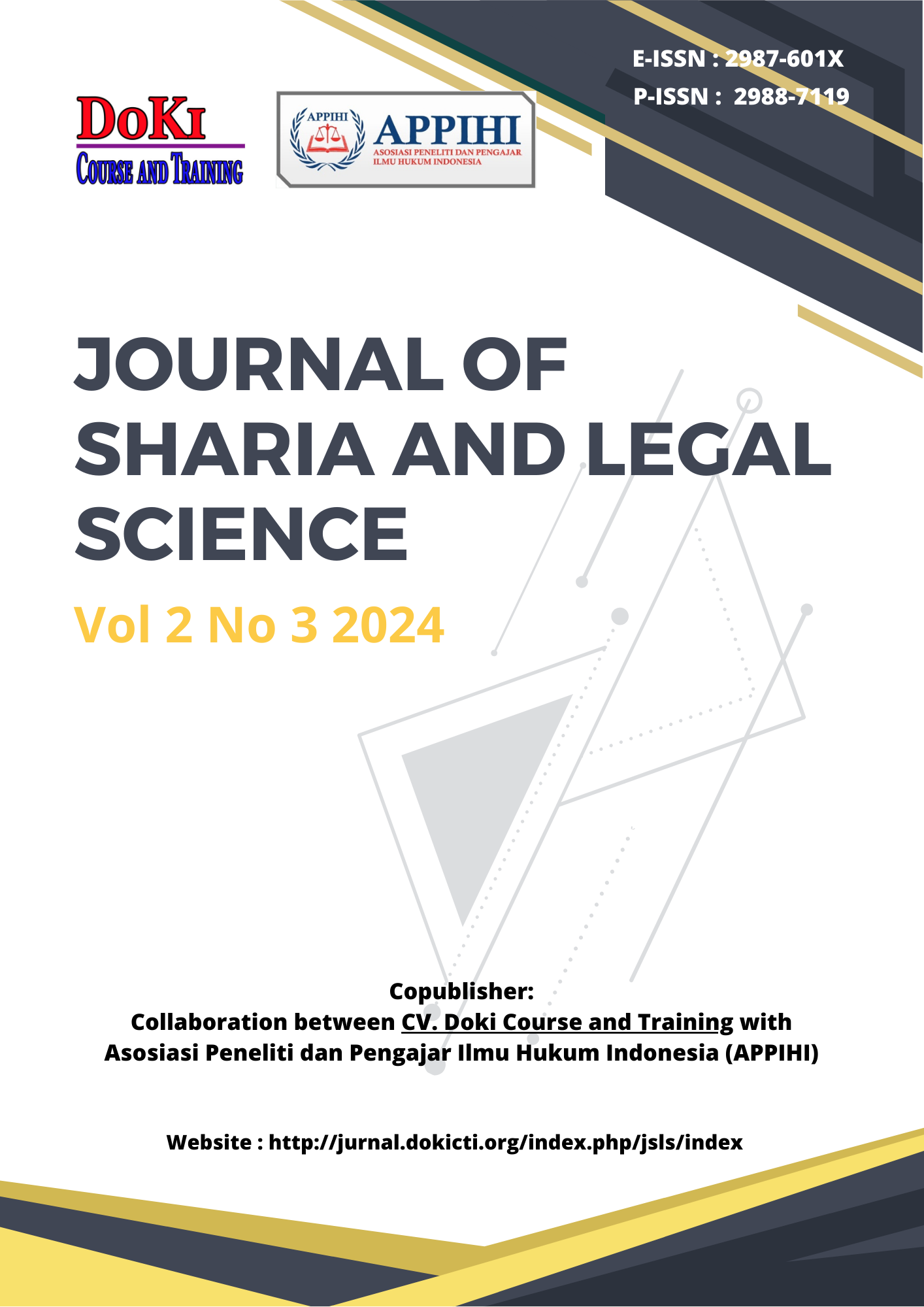Pemetaan Hukum Islam di Nusantara: Peran dan Fungsi Ijtihad
DOI:
https://doi.org/10.61994/jsls.v2i3.687Keywords:
ahkam Syariah, ketuanan Melayu, kolonialismeAbstract
Summarizing the role and function of Islam in the trajectory of law in Malaysia, this paper seeks to conceptualize the influence of shariah and its development in the nation’s legal system. Founded since the Sultanate era of the Malay rulers and continued into the colonial and post-colonial times, it proceeded to study the history of the formation of Malay political entity and its structure of government and the subsequent transition of power into the hand of the Portuguese, Dutch, Japanese and British colonizers. During that time, the Islamic law and its traditional belief and system was highly challenged by the colonial design of Orientalism, Westernization, and modernization to the point of suppressing the local custom of Malay people and their legal and moral values and sentiment. This was exacerbated by the collapse of the Ottoman empire - the last bastion of the Caliph that represent the Pan Islamic ideal embraced by the Malay world. The method of study is based on qualitative (narrative) analysis of the type of library and literature survey. It uses conceptual, descriptive, and analytical method to analyze the data and makes the conclusion. The finding concludes that the enforcement of Islamic law was hindered by the intervention of colonial master prioritizing the implementation of common law underlying its worldview that bring foreign culture and system into the consciousness of the masses for their political advantage, in addition to the dominant secular force of nationalism and communism that prevail and imposed upon the indigenous people throughout the country.
Downloads
Published
Issue
Section
License
Copyright (c) 2024 Ahmad Nabil Amir, Tasnim Abdul Rahman

This work is licensed under a Creative Commons Attribution-NonCommercial 4.0 International License.












